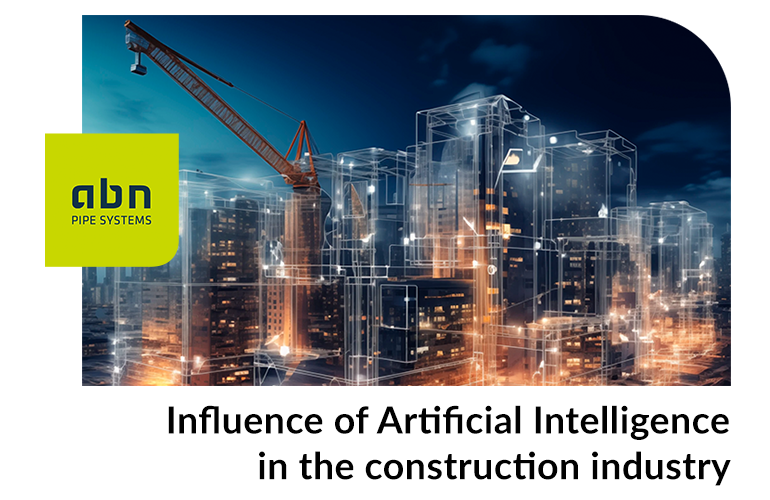In an industry historically rooted in traditional practices and manual labor, such as construction, digitization has been making a significant impact in recent years, carving out a space in the industry that now seems irreplaceable.
Currently, most problems have the potential to be solved using current and emerging technologies in the field of project management, with applications less tied to the physical act of construction.
In this context, AI emerges as a technology capable of drastically reshaping the way planning, design, and construction are carried out.
Application of Artificial Intelligence
Construction spans from the conception of design to the maintenance phase, involving a large number of professionals who need to organize and work towards optimizing projects. In this context, artificial intelligence offers different possibilities:
- Efficient design and planning: AI serves as an ally in optimizing architectural and engineering designs, reducing investment in time and resources. It also facilitates precise data-based planning, a characteristic of Building Information Modeling (BIM) methodology, which helps minimize errors and provides stricter control over project phases and resource organization.
- Project management and logistics: Project management becomes more efficient with AI’s ability to optimize task scheduling and allocate resources, resulting in savings in time and resources.
- Construction and maintenance phase: AI proves its utility in the construction and maintenance phase with the use of drones and autonomous robots. These devices not only optimize work times but also improve workplace safety and enable automated quality control through computer vision systems.
Advantages of using Artificial Intelligence
The application of AI in construction brings a series of benefits that redefine efficiency and work in the sector:
- Optimization and cost reduction: AI aids in organizing the allocation of time and resources, reducing waste and minimizing delays.
- Increased precision and quality: From initial design to maintenance, AI enables the creation of precise designs in less time and real-time control of project phases. This results in a significant improvement in the accuracy and quality of each construction stage.
- Task automation: The ability to automate repetitive activities, such as creating blueprints, allows professionals to focus on fundamental tasks and reduces the likelihood of errors.
- Commitment to safety: Sensors and smart devices can prevent accidents, and data analysis helps identify risk patterns, allowing preventive measures.
- Efficient design: AI uses algorithms to generate efficient architectural designs, optimizing orientation to harness natural light and cross ventilation, contributing to reduced energy consumption.
- Sustainable buildings: AI contributes to the construction of more efficient and sustainable buildings through data analysis and proposing solutions to reduce energy consumption and improve environmental management.
Challenges in the implementation of Artificial Intelligence
Despite the many benefits of implementing AI in the construction sector, these new technologies also pose challenges that require special attention and specific strategies:
- High cost and financial barriers: The required investment in technology and training can be a hurdle for small businesses. AI tools often require a significant investment, giving large companies an initial advantage in the market.
- Cybersecurity risks: Increased reliance on technologies like AI also brings an increase in the risks of cybercrimes and information leaks.
- Lack of specific skills: The shortage of trained professionals in the use of AI in construction is a challenge. Specific training and education programs are needed to cultivate specialized skills among workers.
- Integration of AI with the human workforce: Concerns about the replacement of human workers by AI systems are a current issue. Collaboration between humans and machines is seen as assistance or a solution, requiring, in many cases, a redefinition of roles and job skills.
The future of Artificial Intelligence in construction
According to a recent report from Research Dive, the construction industry is expected to heavily invest in AI startups and the adoption of cloud-based technologies. The report predicts that the sector will generate around 8 billion dollars in revenue by 2031, with the majority occurring in the last five years.
In this case, the challenge for every architect facing AI will be to recognize this shift in work activity and anticipate new tasks by developing the necessary skills that will be required.”
